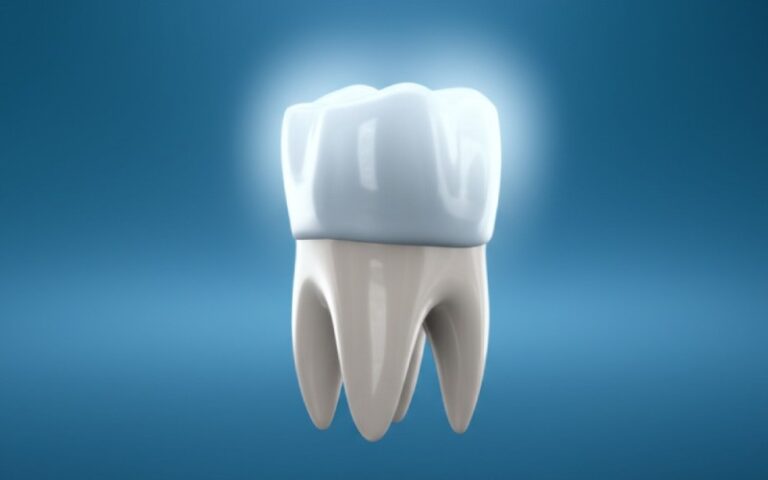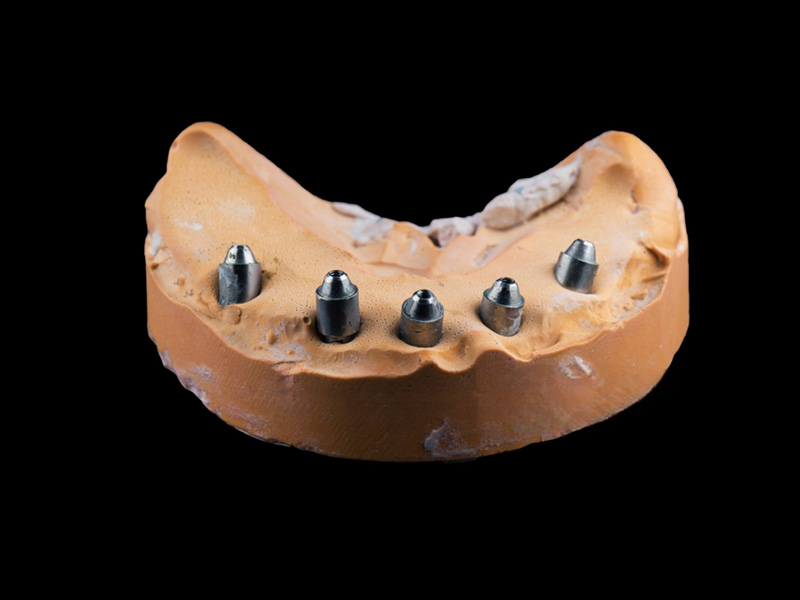
Saving Your Natural Tooth: The Power of Simple Root Canal Techniques for Better Results
Table of Contents
That Root Canal Fear—Is There a Better Way?
If the words “root canal” make you nervous, you’re not alone. Maybe you’ve heard stories about pain or worry the fix will leave your tooth weak. Many people wonder, “Is a root canal really the end for my tooth, or is there a way to save it so it feels and looks normal for years?”
Let’s clear things up: root canal treatment has changed. New, simple techniques now mean less pain, stronger teeth, and better smiles. We’ll explain what that really means, why it matters for you, and how you can keep your own teeth for life.
Understanding the Modern Root Canal
Let’s start with the question everyone asks: why save a tooth with a root canal anyway?
Your teeth aren’t just for chewing. Each one is a small wonder, held in your jaw by living stuff and tiny nerves. When infection or decay gets all the way inside—tooth’s center—you risk losing not just the tooth, but also the way your smile looks and works. Root canal treatment removes the infection while keeping your tooth where it belongs. But old ways sometimes meant losing too much healthy tooth or having pain later.
Today, thanks to simple endodontics (MIE), you don’t need to choose between feeling good and keeping your tooth strong.
How Have Things Changed?
In the past, root canal work focused on getting to the pulp fast, often making big holes—even in healthy parts. This “one size fits all” way meant the tooth could end up weaker and less able to handle everyday use.
Now, root canal specialists are leading a gentle change. The goal? “Keep what nature gave you.” Instead of just clearing out infection, the aim is to save as much healthy tooth as possible. What does that mean for you? Teeth are much less likely to crack, break, or need fixing again.
What is Simple Endodontics (MIE)?
You might see the letters “MIE” in your dentist’s brochure, but what does that really mean?
Imagine you have a lovely wood table with a small scratch. Would you sand down the whole thing, or just fix the scratch? Simple endodontics is like that, but with your tooth.
The Main Idea
MIE is all about saving your own tooth structure. The less good tooth we remove, the stronger it stays. It’s a balance—remove the sick part, protect the rest.
How Is It Not Like Old Root Canals?
- Smaller Holes: Instead of big openings, dentists use tiny, exact spots.
- Gentler Cleaning: Only sick tissue gets taken out—the rest stays.
- Better, Friendly Materials: New fillings and cements actually help your tooth heal more.
Why Does This Matter for You?
Teeth treated with MIE last longer, break less, and feel more like your own tooth. In fact, studies show these teeth keep up to 90% of their old strength—compared to about 50% in old ways.
Key Tools: How We Take Care of Your Teeth Gently
You might wonder what’s behind these new root canals. Let’s look at a few tools your dentist might use:
1. Dental Microscopes
These devices make everything inside your tooth look up to 20 times bigger. Imagine looking for a tiny crack—this makes it easy to find.
Good thing: Dentists clean more fully, so infections don’t sneak back.
2. 3D X-Rays (CBCT)
Think of this as an X-ray that shows your tooth from every side, not just straight on.
Good thing: Finds hidden spots or cracks you can’t see otherwise. The better the map, the better the job.
3. Flexible Cleaning Tools (NiTi Files)
Old tools were stiff. New files bend and let the dentist clean out the root with less stress on the tooth.
Good thing: Less risk of tiny cracks or trouble, even in weird twisty roots.
4. Ultrasonic and Laser Tools
What do they do? They clean out infection with small shakes or light, kind of like a power washer for your tooth.
Good thing: Cleans out germs without hurting the healthy tooth.
5. New, Friendly Fillers
Old fillings sometimes shrank or didn’t fix well. Modern fillers are friendlier to your body and can help the bone heal.
Good thing: Stops leaks and infections, helps the tooth last.
That’s why a “high-tech” dental office seems different—it lets your dentist treat you with less pain and better results.

How Simple Root Canals Help You
1. Stronger, Longer-Lasting Teeth
By keeping more tooth, you lower the chance of cracks. Imagine a tree with a thick trunk standing against storms. That’s your tooth with MIE.
- Fact: Large holes from older root canals could cut the tooth’s strength in half. MIE keeps 80–90% of the strength.
2. Less Pain and Quicker Healing
Surprise—root canals don’t have to hurt. Modern numbing, tiny holes, and new tools mean you feel little or nothing—during and after.
- Expect: Less swelling, less need for pain pills, and back to work or school faster.
3. Better Healing
With careful cleaning and new fillers that help you heal, bone and gums often repair better.
- Proof: 3D X-ray scans show healing at the root tip can be over 90% with MIE.
4. More Sure, Steady Results
Years ago, people needed root canal retreatment a lot—often because small canals or infection were missed. Now, with better tools, that’s much less likely.
- Example: Dental microscopes help dentists spot and clean extra canals that were missed before, lowering trouble later.
5. Natural Look and Feel
Your smile looks the same. You eat and talk with ease. More tooth means you might skip expensive crowns.
Gentle Steps That Save Teeth
Not every root canal, or tooth, is the same. A good dentist or specialist will always try the least harsh fix that still works.
Minimally Invasive Openings
- What? Making the smallest hole possible to fix the infection but leaving strong tooth under the surface untouched.
- Why? More strong tooth left means more safety when you bite.
Gentle Root Cleaning
- How’s It Not the Old Way? Old ways used thick, rough tools that could grind away healthy tooth. The new, bendy files and even gentle vibrating tips clean only where needed.
- Win: Less stress on the tooth and fewer cracks.
Growing New Root in Young Teeth
- Think of a child with a bad tooth and the root isn’t done growing. Instead of taking all the pulp out, new fixes can help the root keep growing and get stronger.
- Win: These fixes work more than 9 out of 10 tries—a big jump from old methods that meant removing the tooth.
Healing the Pulp Instead of Removing
- What? If you catch a problem early, you can sometimes keep part of the soft middle alive.
- How? Remove the bad bit and place a special covering, so the remaining part can recover.
- Good news: Your tooth feels more normal and alive.
Careful Updating for Old Root Canals
Sometimes, old work needs updating. MIE means fixing only what’s needed—not tearing out or breaking more tooth than we have to.
Is Simple Treatment Right for You?
Who Does Simple Root Canals?
More and more regular dentists use bits of MIE, but the best care comes from a root canal specialist (endodontist) with extra training and tools. If your case is simple, a regular dentist can work well. If things look tricky, or you want all options for saving your tooth, see a specialist.
When to See a Specialist?
See a root canal specialist if:
- Your tooth’s already had a root canal and still isn’t okay.
- You have a cracked or hurt tooth.
- X-rays show strange root shapes.
- You want every choice for saving your tooth.
Ask your dentist—if there’s any doubt, a specialist is never a bad idea.
Long-Term Success: What to Expect
Wonder how simple root canals last? Here’s some proof:
Real Results
- Success: MIE shows 90–98% of teeth are doing well, especially with good X-rays and new fillings.
- Tooth strength: Teeth fixed with small holes and gentle tools keep up to 90% of their old strength (instead of just half if lots is drilled away).
- Comfort: Fewer people need another fix. Most say there’s much less pain, both during and after.
A Real-Life Story
Jill, a 35-year-old teacher, came in after biting popcorn and feeling a “zing” in her tooth. To regular X-rays, nothing showed, but 3D scans and a microscope helped her specialist fix everything through a tiny hole. Three years later, Jill’s tooth is strong, never hurts, and she barely remembers getting it fixed.
What’s It Like to Have Done?
- Before: The dentist gets pictures and scans so they know exactly what’s happening.
- During: Numbing means you shouldn’t feel pain. A small cover keeps the area clean.
- After: Most people are back to normal the next day. Some mild soreness is normal, but bad pain is pretty rare now.
Your Healthy Takeaway
Let’s be honest—no one wants a root canal, but sometimes it’s the smartest move for your smile. New, gentler ways mean you don’t have to give up comfort, strength, or looks.
The Main Things
- MIE saves more of your own tooth, so it stays strong for years.
- Better tools (microscopes, 3D scans) mean problems are found—and fixed—right away.
- Gentler treatments mean less pain, fewer problems, and faster healing.
- A root canal specialist is your best bet for hard cases.
- With the right care, most fixed teeth don’t just “hang on”—they do great.
What Should You Do Next?
- If you need a root canal, ask your dentist:
- “Do you use gentle, simple techniques?”
- “Would my tooth need better pictures, like a 3D scan or microscope?”
- “Should I see a root canal specialist?”
- Don’t ignore a sore or swollen tooth. These might mean infection is moving deeper. Act fast—the sooner you get help, the easier the fix.
- Brush daily, floss, and get check-ups. Stopping decay early is still the best plan.
Frequently Asked Questions
Q: Will a simple root canal hurt less?
A: Most people say it barely hurts, if at all, thanks to smaller holes and modern numbing.
Q: Do I still need a crown after a root canal?
A: It depends on how much tooth is left. With gentle treatment, you might not need one—especially for front teeth. Molars might still need a crown to protect them.
Q: Can every dentist do gentle root canals?
A: Many general dentists use these methods, but the best gear and skills are often with specialists.
Q: If my tooth is cracked, can it still be saved?
A: Often yes, especially with today’s pictures and filling stuff. But catching it early is super important—see your dentist soon.
Sources & More Reading
- American Dental Association (ADA): Root Canals
- American Association of Endodontists (AAE): Saving Your Teeth
- Journal of Endodontics: Bioceramics and Minimally Invasive Techniques—A Review
The Bottom Line
Today’s root canal work isn’t what it used to be. If you care about saving your own teeth—with less pain and more confidence—find a team who uses gentle, simple techniques. Your future self (and your smile) will thank you.
Want to know more or book a visit? Your local dentist or root canal specialist can answer your questions and plan your best smile.








